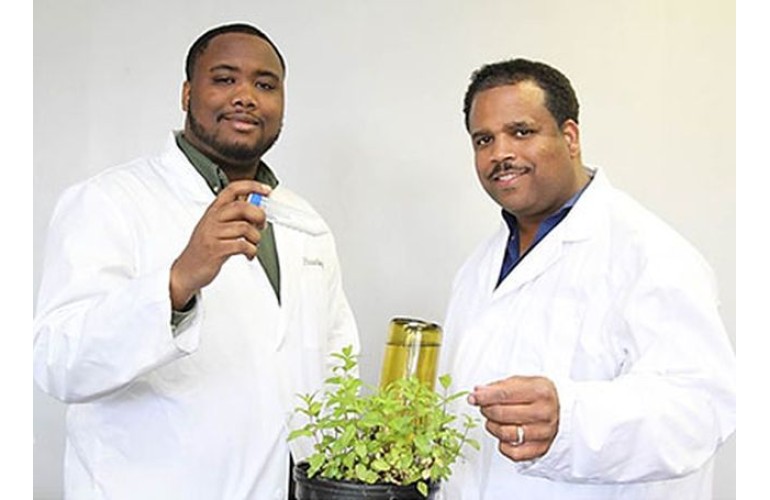 Subscribe
Subscribe- Login
-
/
Sign Up
- US Black Engineer
- >>
- Articles
- >>
- HBCU Technet
- >>
- Tuskegee researchers use nanotech to feed plants
|
Getting your Trinity Audio player ready...
|
Tuskegee’s George Washington Carver left quite a legacy for farming systems and crop cultivation. Now, scientists and engineers at the Alabama university have developed a greener, plant-based fertilizing system.
Dr. Michael L. Curry and chemistry graduate student Demetrius Finley have created a new means of delivering nutrients to plants, according to the university.
Along with patenting, the researchers are moving their discovery from the lab to the field for further testing. Curry, who is an associate professor of chemistry and materials science and engineering, hopes that the Tuskegee team will explore opportunities to bring this technology to the marketplace in the next 12 months.
“Think of it as plants feeding plants,” said Curry. “This delivery system relies on using parts of one plant to actually nurture the needs of another plant. In addition to boosting agricultural efficiency, this delivery system promises to be one of the most cost-effective means for farmers to sustain and maximize their crop productivity.”
According to the American Association for the Advancement of Science, interest in developing farming systems capable of delivering safe, nutritious and sustainable food supplies is on the rise.
“Nanotechnology has enhanced farming across the world, but there still is an increasing need to target crops with species-specific nutrients,” he said. “In other words, our delivery system, through precision agriculture, is versatile enough to deliver the specific nutrient or nutrients required — such as nitrogen, copper or zinc — to the specific plant in the desired quantities.”
Although currently available chemical-based commercial fertilizers and nutrient delivery systems help farmers increase crop yields and enhance profit margins, they come with drawbacks as well.
Chief among those is how these conventional fertilizers could destabilize soils due to their toxicity, thereby adversely affecting the environment.
“Our delivery system is composed solely of plant biomass-based cellulose and the nutrients needed by the plant, (so) it presents no ecological detriment to the environment,” Curry said. “It degrades without the release of toxins that can leach into the soil, water supplies and the plants themselves.”
Along with Curry and Finley are Tuskegee University colleagues Dr. Willard Collier, assistant professor of chemistry, and Dr. Richard Whittington, an assistant professor of biology.
Curry has also partnered with Dr. Jason White, vice director of the Connecticut Agricultural Experiment Station, and Dr. Kimberly Cook-Chenault, associate professor of mechanical and aerospace engineering at Rutgers University, to explore the advantages of the newly designed nutrient delivery system.


